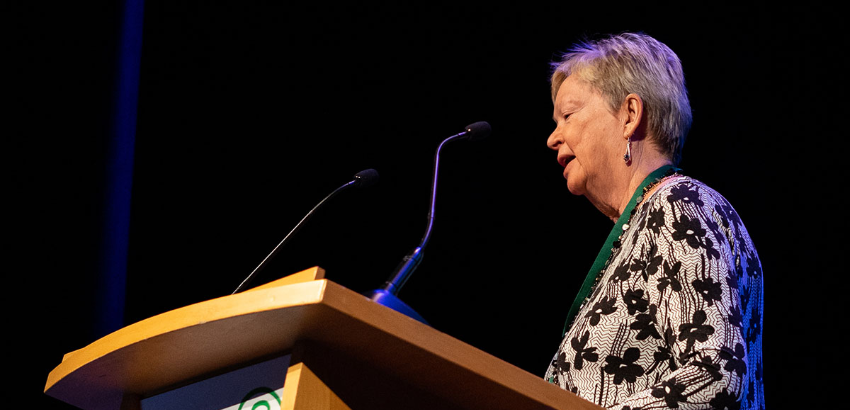
Career advice from our eminent neuroendocrinologists
Over the last few years we at the British Society for Neuroendocrinology have interviewed our eminent neuroendocrinologists about their careers. In this blog we have brought together their collective advice to up-and-coming neuroendocrinologists.
Professor Neil Evans
"Take the opportunities that present to you, that you think are interesting, and never wonder what would have been if you had done something differently."
Read the full interview: www.neuroendo.org.uk/page.php?item_name=Brainwaves%3A+Interview+with+Professor+Neil+Eva
Dr Jane Robinson
Adapted from Jane's answer about where she gets new research ideas:
Keep on top of current literature and which research informs it. Conferences are wonderful places to learn more, network and think of new research ideas, including techniques....work with people who have different skills to find unique areas of research. Although learning to take constructive criticism is often painful, it essential to learning, and particularly valuable from those outside of [your] field of research.
Read the full interview: www.neuroendo.org.uk/page.php?item_name=Brainwaves%3A+Meet+the+neuroendocrinologist+wit
Professor Giles Yeo
"Don’t p*ss anyone off unnecessarily and make yourself useful so you are more of a pain in the *ss to replace than to keep. Or you can take my son’s advice (when he was 4 yrs old) when he was walking in Wales and getting fed up. My wife and I were powering ahead and suddenly we heard behind us “never give up, never look back” (I think he was quoting the power rangers)."
Read the full interview: www.neuroendo.org.uk/page.php?item_name=Brainwaves%3A+Interview+with+Dr+Giles+Yeo
Professor Dave Grattan
"Just like all other walks of life, the best thing in science is to be a good person. Treat people as you would wish to be treated. Be honest and open with your colleagues, be interested in their work, and celebrate their successes. And be kind, constructive and genuine when you have a chance to become a reviewer. I can think of a few people who probably would have wished to be remembered as great scientists, but instead they are remembered less flatteringly from their actions or attitudes. Stay curious, and follow your passions. Life is too short to waste time on something you are not really interested in."
Read the full interview: www.neuroendo.org.uk/page.php?item_name=Brainwaves%3A+Interview+with+Professor+Dave+Gra
Professor Stafford Lightman
"Only do research that excites you, and remember that your research needs to evolve with time. Just pursuing the one technique you are good at will eventually lead to a dead end."
Read the full interview: www.neuroendo.org.uk/page.php?item_name=Brainwaves%3A+Interview+with+Professor+Stafford
Professor Helen Christian
Adapted from Helen's interview:
Teaching is a good way to get new ideas – students are great at asking questions that challenge assumptions. Never skimp on giving feedback and encourage the next generation of neuroendocrinologists.
Read the full interview: www.neuroendo.org.uk/page.php?item_name=Brainwaves%3A+Meet+the+neuroendocrinologist
Professor Fran Ebling
"Be persistent, go with your gut feelings, try spending some time working in another country, don’t spend too much time listening to opinionated old gits like me."
Read the full interview: www.neuroendo.org.uk/page.php?item_name=Brainwaves%3A+Interview+with+Professor+Fran+Ebl
Professor Gareth Leng
"The output of science has been doubling every ten years or so, and that won’t stop. The challenge will be to try to make the most of this and to make your voice stand out. In any vast interconnected network, ‘hubs’ - elements that create links across disparate fields - are critically important. Neuroendocrinology is a natural ‘hub’ discipline – its importance comes from integrating understanding across diverse fields. To be an effective hub voice, you need to make these links, and to develop a clear, authoritative, individual voice. That means prioritising scholarship – knowing the literature and understanding its strengths and weaknesses; and communication – clear and cogent argument and engaging presentation. So take every opportunity to meet people, to talk, listen, and argue. Travel, go to meetings, make friends, and argue with them. Don’t fret about impact factors, enduring impact will come from the connections you make and the networks you build, and from finding your voice and learning how to project it."
Read the full interview: www.neuroendo.org.uk/page.php?item_name=Brainwaves%3A+Interview+with+Professor+Gareth+L
Get support from our expderienced neuroendocrinologists by taking part in the BSN mentorship scheme
If you are an early career researcher and would like support from experienced neuroendocrinologist, take a look at the BSN mentorship scheme. We are delighted to have a team of mentors who are also BSN members willing share their expertise and experience in the field of neuroendocrinology with mentees. Mentors and mentees can discuss anything related to their work - from career progression to navigating tricky work environments.
Find out more about the mentorship scheme: www.neuroendo.org.uk/ecrmentors.php
Image: Dr Jane Robinson speaking a the Festival Society of Neuroscience, BNA2019 in Dublin, Ireland.

